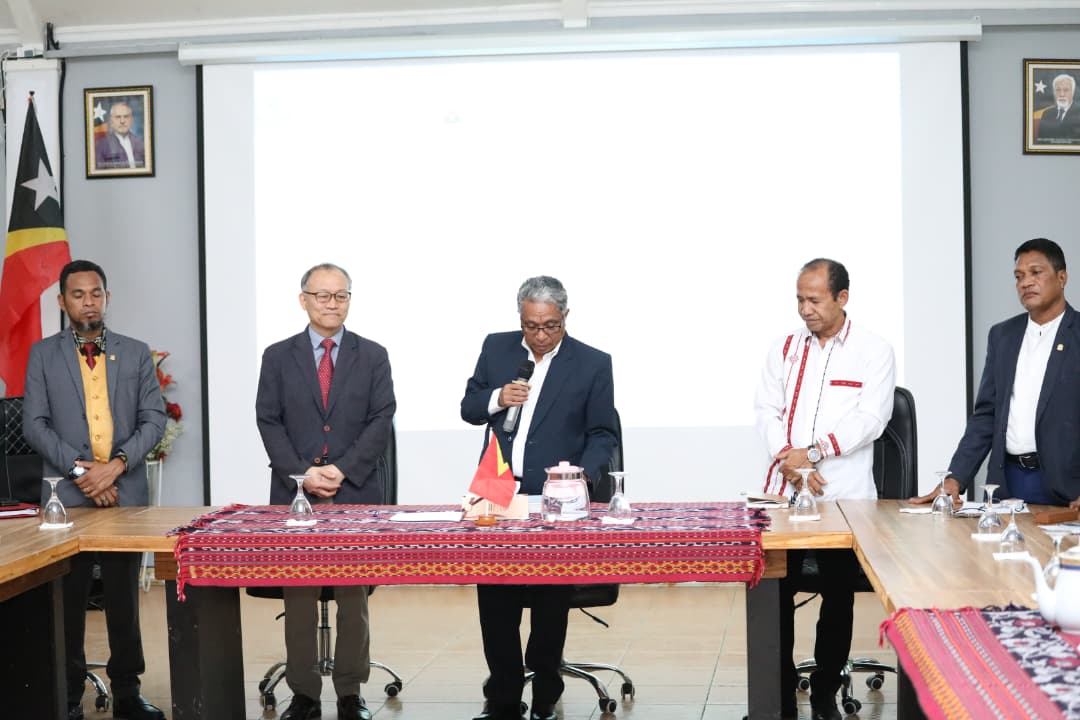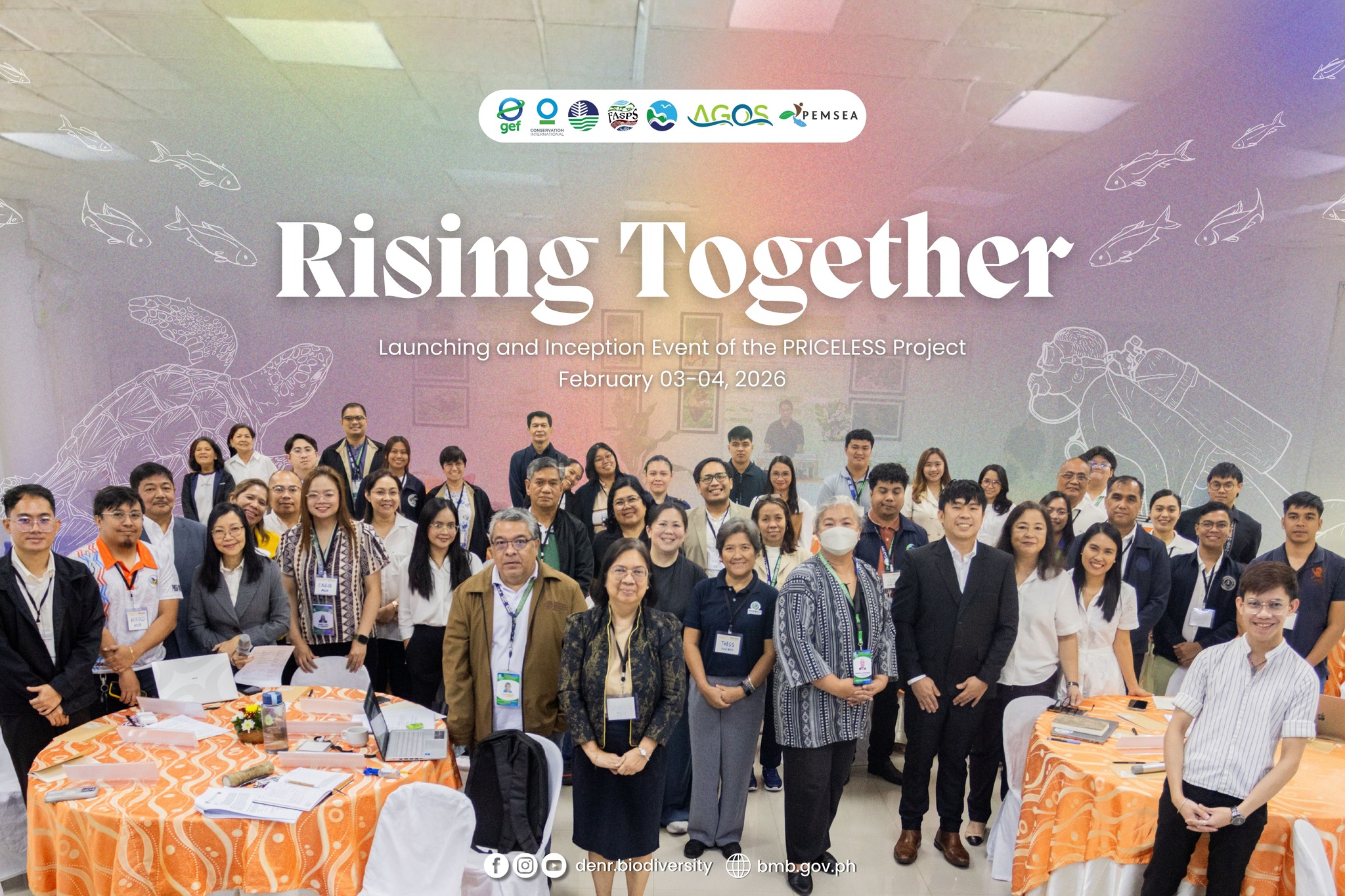PEMSEA Welcomes the New Officers and Co-Chairs of the East Asian Seas Partnership Council
Thursday, 31 July 2025
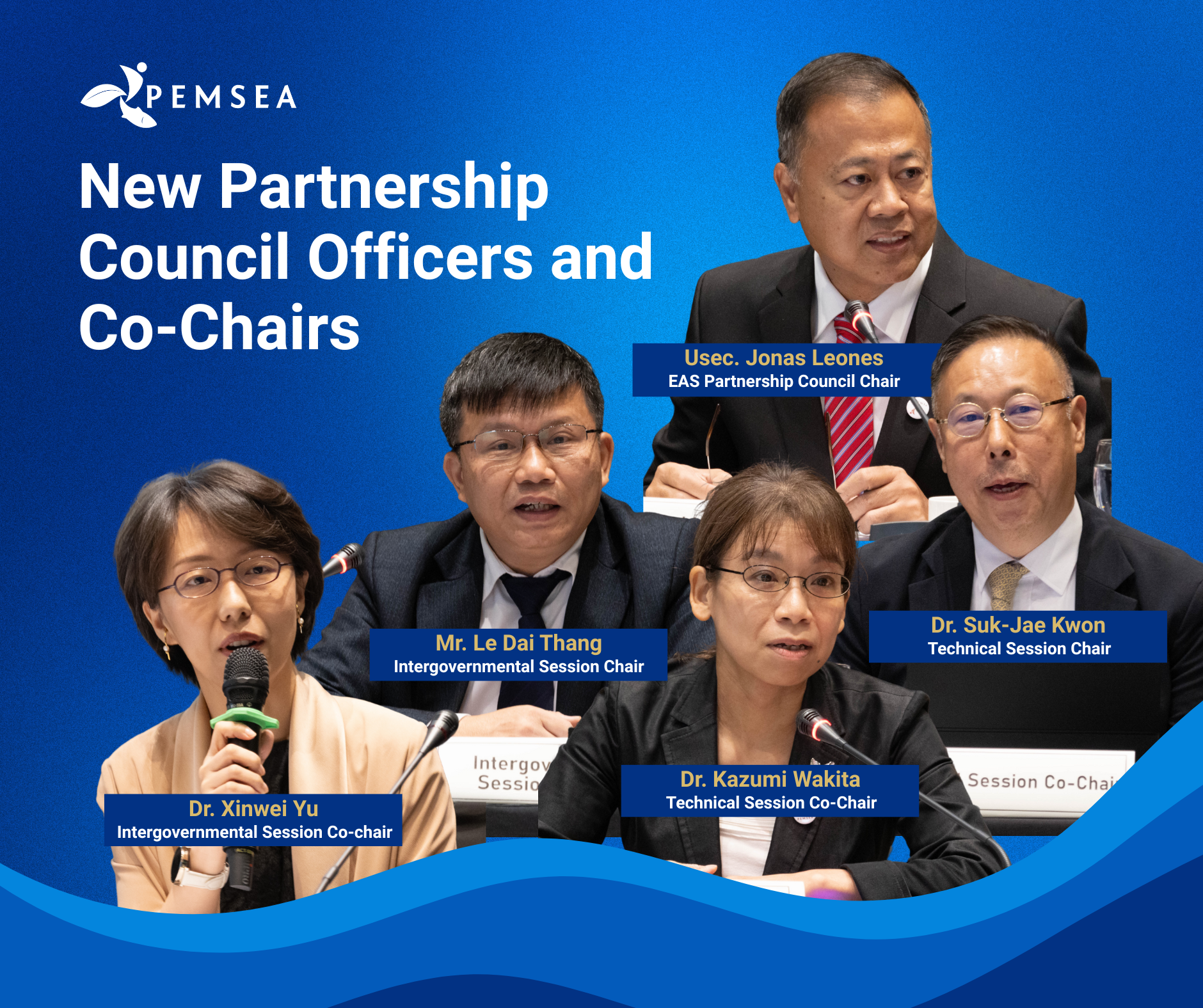
The East Asian Seas Partnership Council (EAS PC) installed its newly elected Officers and Co-Chairs on 23 July 2025 during the 17th EAS PC Meeting in Manila, Philippines, officially commencing their three-year term from 31 July 2025 to 30 July 2028.
Get to know the officers and co-chairs with their profiles below:
Council Chair: Atty. Jonas Leones
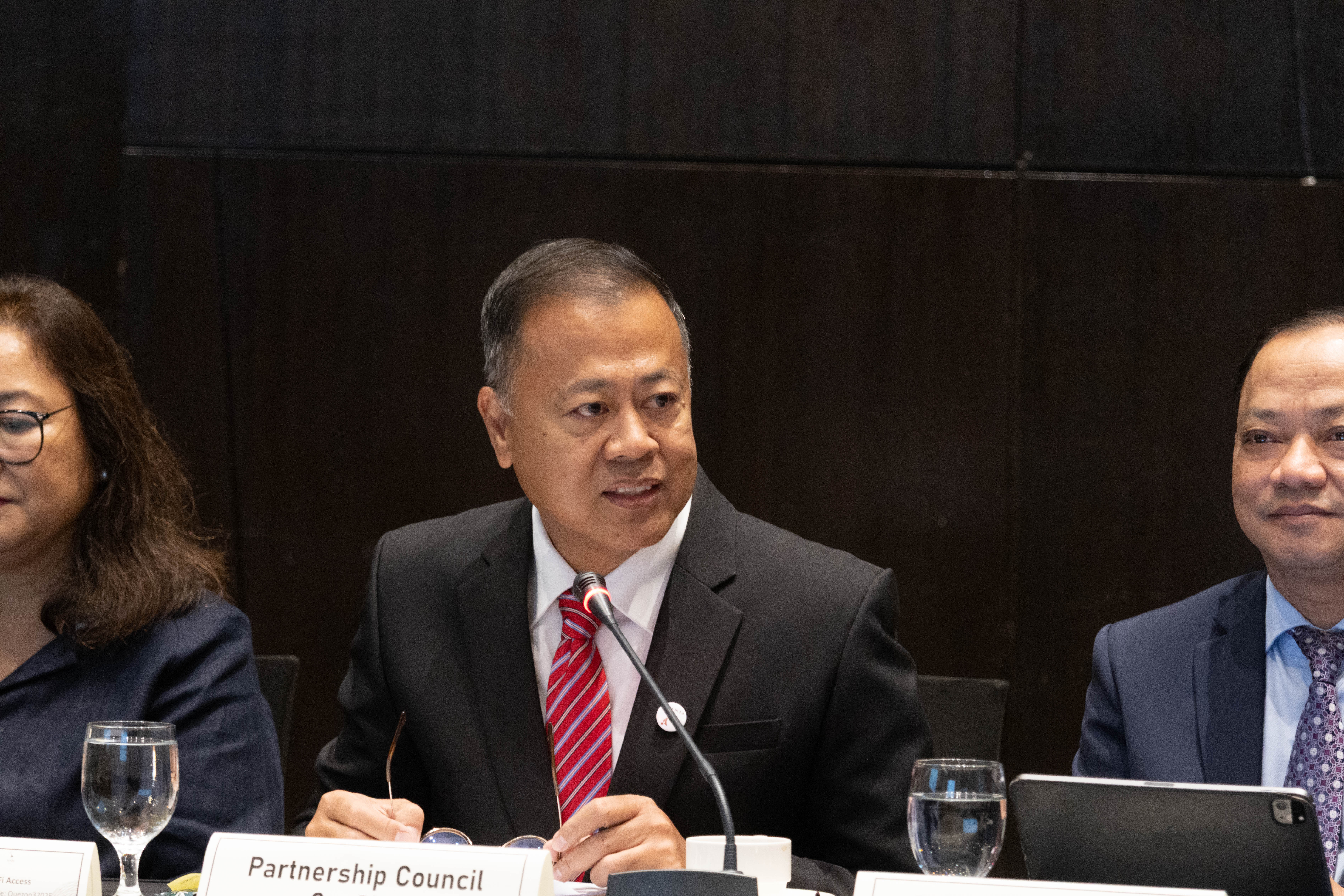
Atty. Jonas Leones has spent more than 30 years in public environmental service, rising through the ranks of the Philippine Department of Environment and Natural Resources to become Undersecretary for Policy, Planning, and International Affairs. He also serves as the Department’s Spokesman and Presiding Officer of the Pollution Adjudication Board.
Over the course of his tenure, he has overseen a wide range of portfolios, including policy and planning, ecosystems research, legal affairs, foreign-assisted projects, strategic communications, and forest management. .
A familiar figure in international environmental negotiations, Mr. Leones has represented the Philippines in forums such as the UN Framework Convention on Climate Change, the UN Environment Programme’s Committee of Permanent Representatives, and key multilateral agreements including the Basel, Rotterdam, Stockholm, and Minamata Conventions, as well as the Montreal Protocol and the APEC Chemical Dialogue. He has chaired several national committees and steering councils focused on sustainable development.
Mr. Leones holds a Master’s in Public Management from Harvard University and the National University of Singapore. He earned his law degree from New Era University and holds both a master’s in environmental science and a bachelor’s in forestry from the University of the Philippines Los Baños.
Intergovernmental Session Chair: Mr. Le Dai Thang
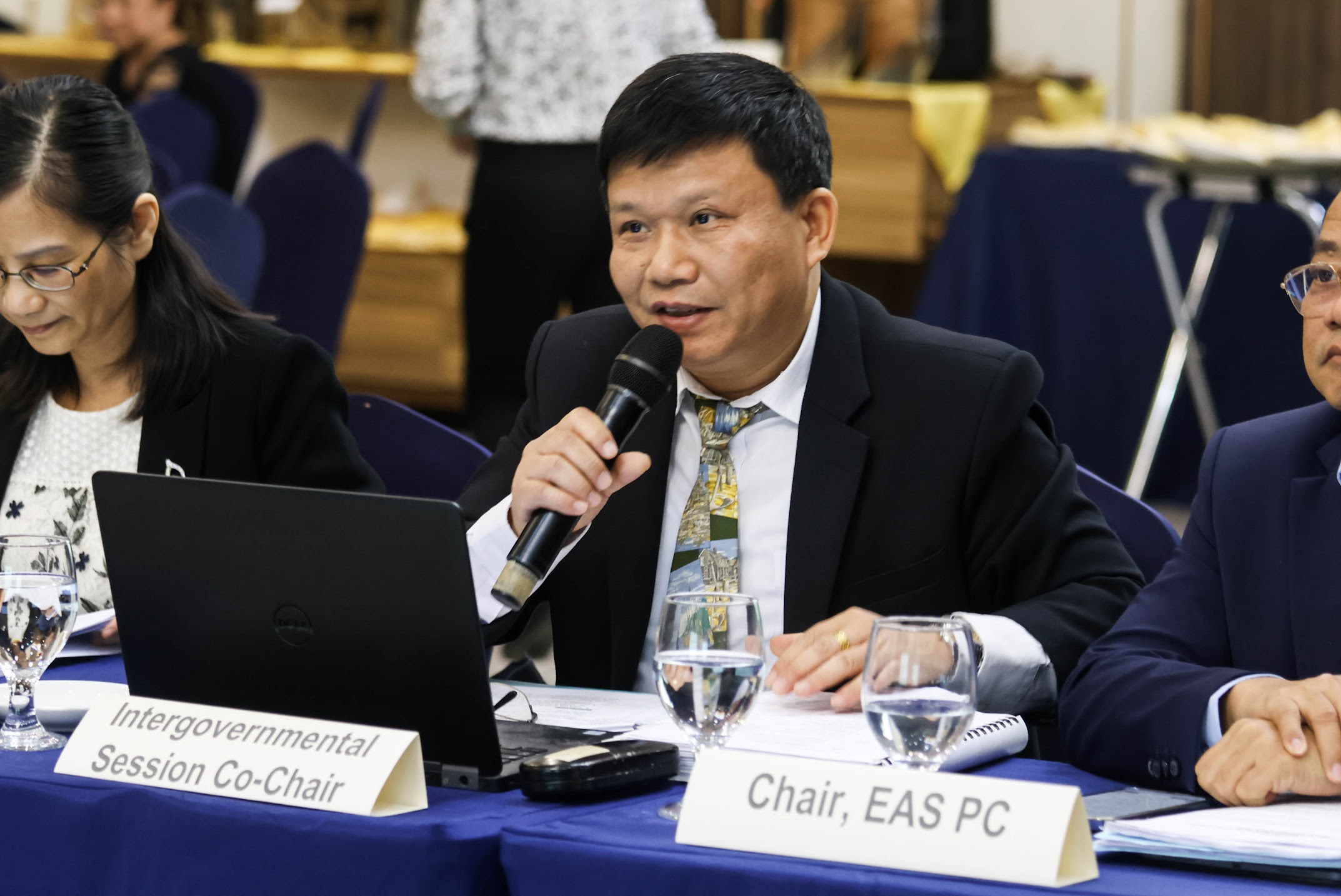
Mr. Le Dai Thang has two decades of experience in integrated coastal management, environmental impact assessment, marine pollution control, and monitoring and evaluation of Viet Nam’s coastal and marine sectors. He currently serves as Deputy Director of the Bureau of Marine Resources Control and Marine, Island Environment Protection under the Viet Nam Agency of Seas and Islands of the Ministry of Agriculture and Environment (MAE).
He is Viet Nam’s Alternate National Focal Point to the ASEAN Working Group on Coastal and Marine Environment and engages in several national and regional initiatives, including the UN Joint Group of Experts on the Scientific Aspects of Marine Environmental Protection (GESAMP).
Mr. Le previously served as national coordinator for the PEMSEA/Sustainable Development Strategy for the Seas of East Asia (SDS-SEA) Project, the Coordinating Body on the Seas of East Asia, and other regional marine environmental programs. His earlier work includes key roles at the National Environment Agency, the Viet Nam Environment Protection Agency, and the Viet Nam Environment Administration.
He holds both a Master’s and a Bachelor’s degree in Environmental Management from Ha Noi National University, as well as a Bachelor’s degree in English from Ha Noi University of Foreign Studies.
Intergovernmental Session Co-Chair: Dr. Xinwei Yu
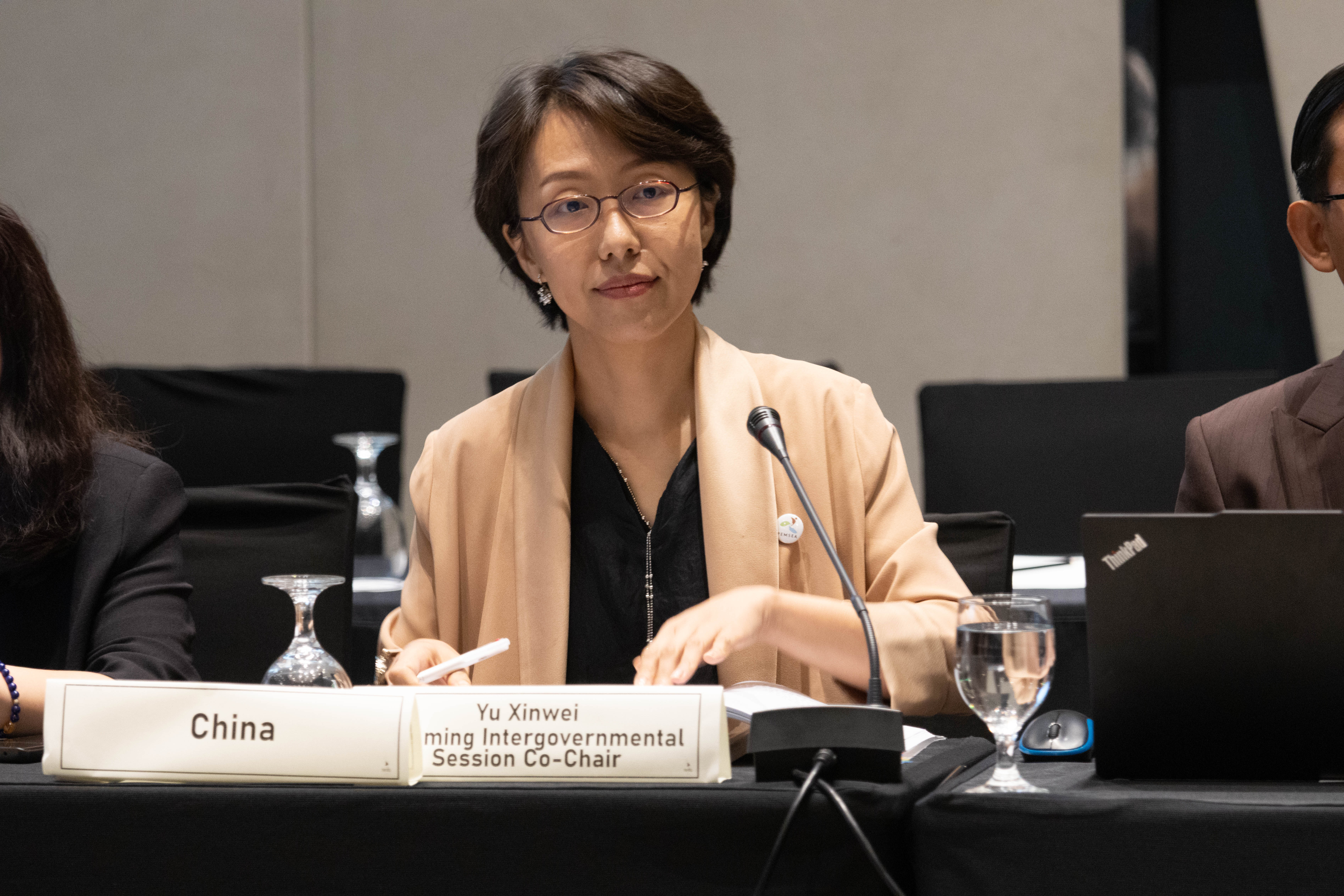
Dr. Yu Xinwei currently serves as Director of the Marine Cooperation Division of the International Cooperation Department of China’s Ministry of Natural Resources (State Oceanic Administration). Her career spans more than 18 years in the fields of marine and polar cooperation, regional program management, and international ocean governance.
Dr. Yu’s work has evolved from leading collaborations with the European Union and Small Island Developing States to focusing on bilateral and multilateral partnerships with neighboring countries in East and Southeast Asia. Her expertise covers technical, legal, and policy dimensions of ocean affairs, including the law of the sea, marine policy development, and program coordination.
She has served as the national coordinator for the implementation of the PEMSEA/SDS-SEA project in China and was the primary liaison for China’s hosting of the East Asian Seas Congress in 2024 in Xiamen.
Dr. Yu holds a Ph.D. from the China Institutes of Contemporary International Relations, a master’s degree in Law from Peking University, and a bachelor’s degree in Marine Engineering from Tianjin University.
Technical Session Chair: Dr. Suk-Jae Kwon
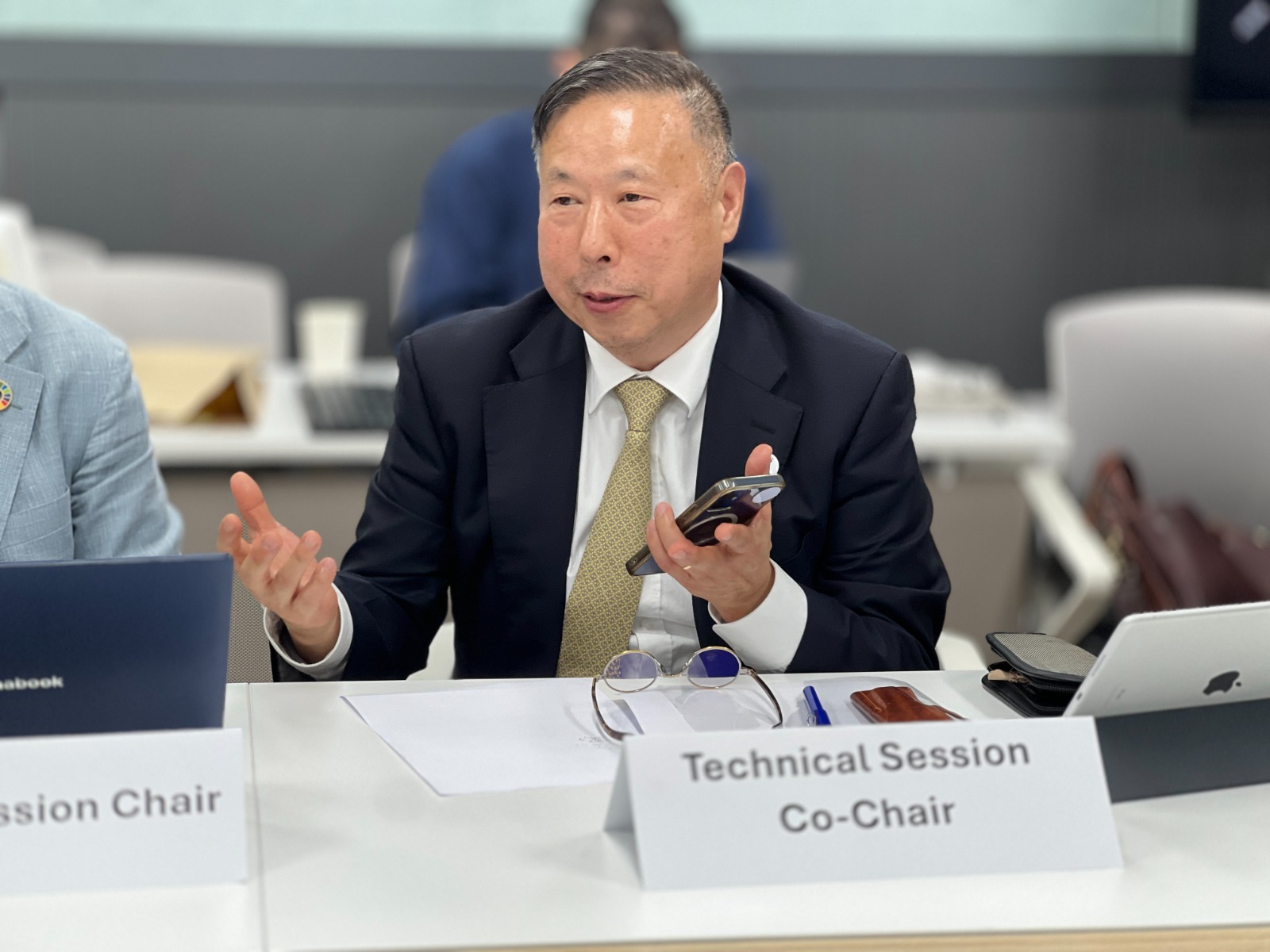
Dr. Suk-Jae Kwon is an environmental and natural resource economist with expertise in integrated coastal management, ecosystem service valuation, and damage assessment related to climate change and natural disasters. He serves as a Principal Research Scientist at the Korea Institute of Ocean Science and Technology, a PEMSEA non-country partner, where he has served for more than a decade.
In addition to his research role, Dr. Kwon is Vice President and Committee Chair of the Equatorial Forum, Chairman of a subcommittee of the Korean Wetlands Society, and Adjunct Professor at Korea Maritime and Ocean University.
Earlier in his career, he held senior leadership roles at the Marine Biodiversity Institute of Korea and the Korean Society of Marine Environment and Safety. He also played an advisory role to the Republic of Korea’s Ministry of Oceans and Fisheries and the UNDP/GEF Yellow Sea Large Marine Ecosystem Project—both affiliated with PEMSEA as non-country partners.
Dr. Kwon earned his Ph.D. in Environmental and Natural Resource Economics from the University of Rhode Island in the United States and holds both M.A. and B.A. degrees in Economics from Sungkyunkwan University in the Republic of Korea.
Technical Session Co-Chair: Dr. Kazumi Wakita
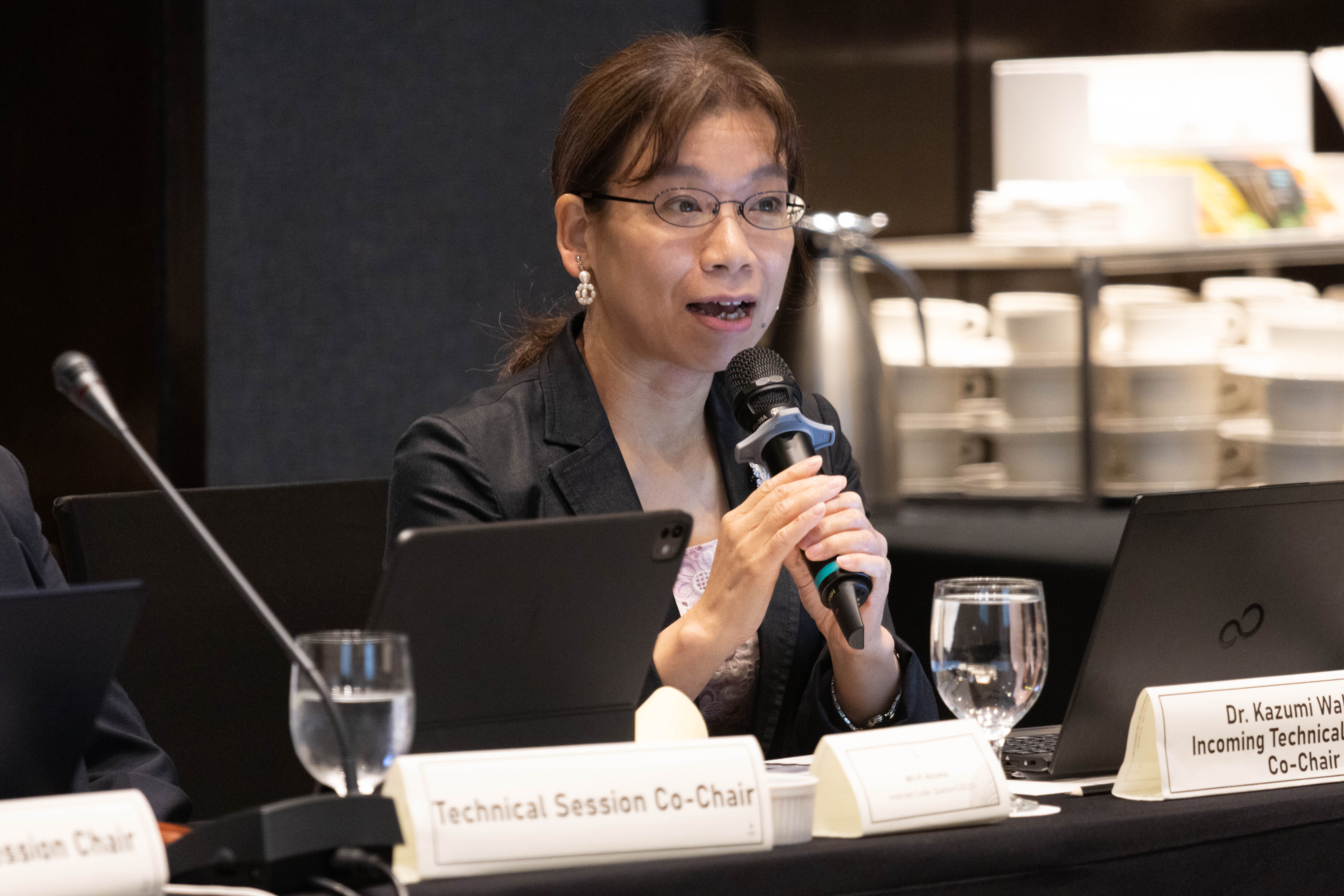
Dr. Kazumi Wakita is a professor at the School of Marine Science and Technology, Tokai University, specializing in integrated coastal management (ICM) and marine spatial planning (MSP).
With more than 20 years of experience, she combines academic research with hands-on implementation of ocean and coastal governance in Japan and across East and Southeast Asia.
Dr. Wakita earned her Ph.D. in Agricultural Science from the University of Tokyo, and holds both master’s and bachelor’s degrees in civil engineering from Waseda University. She also completed advanced training in integrated coastal zone management at the MEDCOAST Institute in Turkey.
Earlier in her career, she worked as a programme officer at the United Nations Development Programme (UNDP), managing projects under PEMSEA.
She later advanced ICM efforts in Japan through her work with the Ocean Policy Research Foundation, where she supported Shima City’s membership in the PEMSEA Network of Local Governments and its eventual hosting of the PNLG Forum.
.
She co-chaired a 2021 policy proposal on integrated coastal and ocean management spearheaded by the Japan Society of Ocean Policy and the Japanese Association for Coastal Zone Studies.
Since 2024, Dr. Wakita has been a research fellow with the Japan Foundation Indo-Pacific Partnership Program and a visiting fellow at the University of Wollongong’s Australian National Centre for Ocean Resources and Security, working on a regional project focused on ocean planning and well-being.
She currently sits on several national and local policy committees, including Japan’s Cabinet Office Committee on Maritime Domain Awareness, the Ministry of the Environment’s National Committee on Marine Restoration, and coastal management councils for Shizuoka Prefecture and Kita-Kyushu City. She is also a member of the UNESCO-IOC Sub-Commission for the Western Pacific (WESTPAC) and a co-lead of its Harmful Algal Bloom Program. She also serves on the Working Group on Sustainable Ocean Planning and Management under UNESCO-IOC.
Her research work bridges science and society, exploring socio-psychological dimensions and policy frameworks in sustainable ocean governance. She has received multiple awards, including the JAMSTEC Nakanishi Award and multiple Excellent Paper Awards from the Japanese Association for Coastal Zone Studies.
About the East Asian Seas Partnership Council
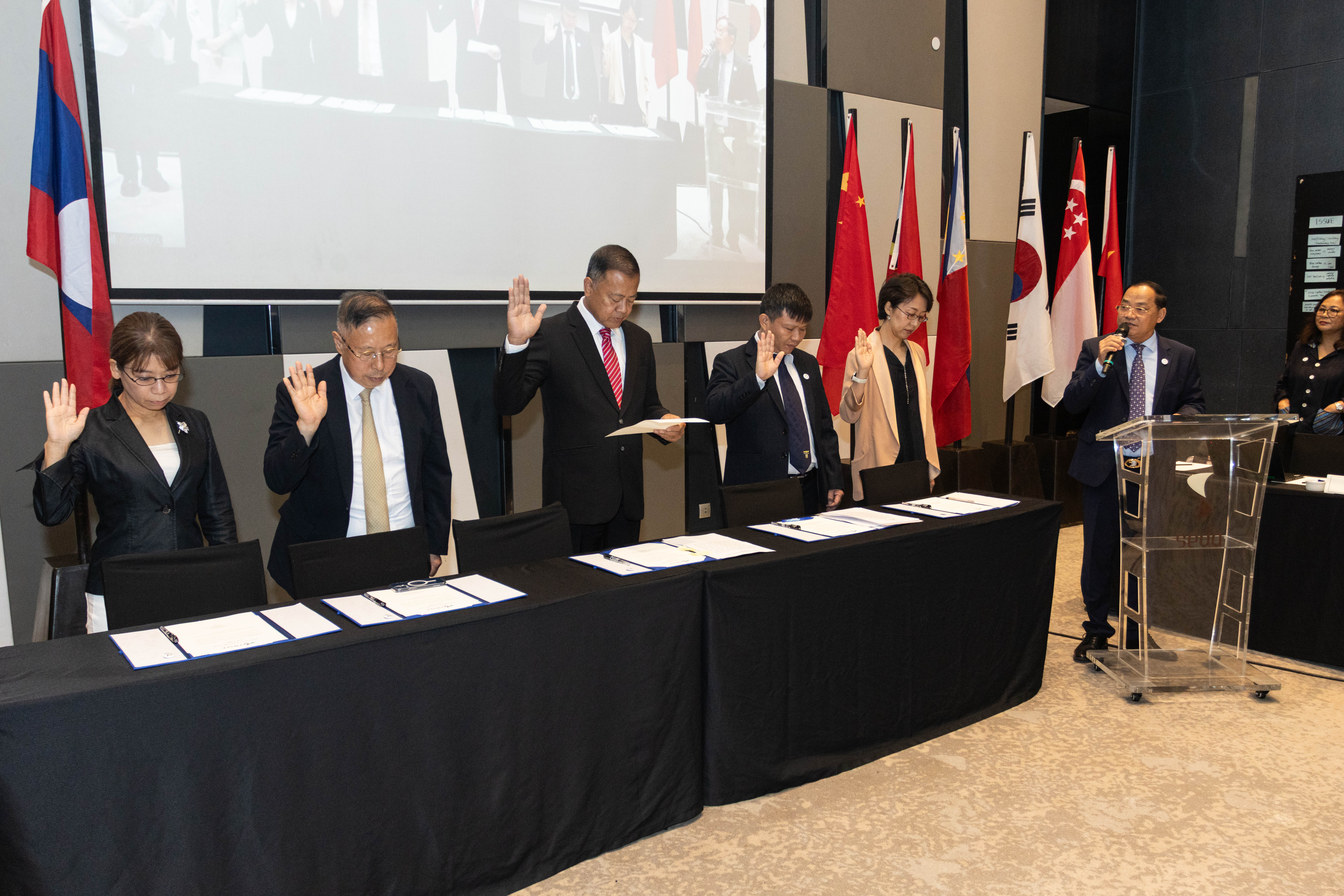
The East Asian Seas Partnership Council is PEMSEA’s principal decision-making body. It provides policy and operational guidance for implementing the SDS-SEA and ensures alignment with Ministerial commitments and regional declarations. Composed of all PEMSEA Country and Non-Country Partners, the Council steers, reviews, and monitors the direction and effectiveness of ongoing initiatives. An elected Executive Committee supports implementation between formal sessions.
The Council's leadership structure consists of two constituents of governance: the Intergovernmental Session, composed of PEMSEA’s Country Partners, and the Technical Session, which includes both Country and Non-Country Partners. Together, they are responsible for policy formulation, technical review, program oversight, and monitoring progress toward the implementation of the Sustainable Development Strategy for the Seas of East Asia (SDS-SEA).
The Intergovernmental Session leads the Council’s policy and budget decisions, with members elected from among the Country Partners. The Technical Session, on the other hand, provides scientific and technical advice, evaluates projects and programs, and promotes collaboration on emerging coastal and marine issues.

